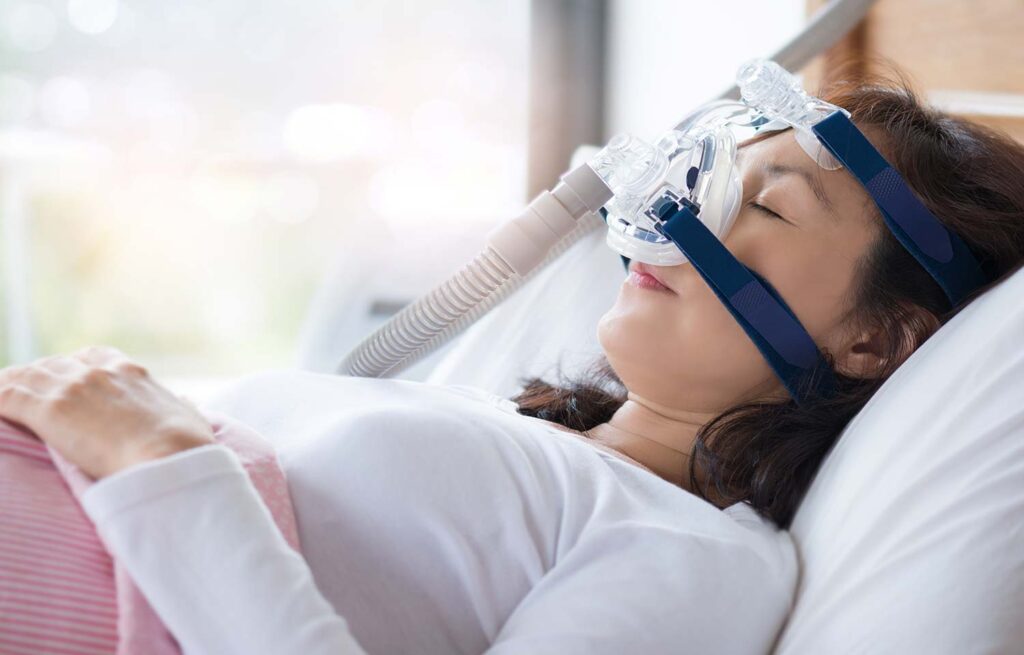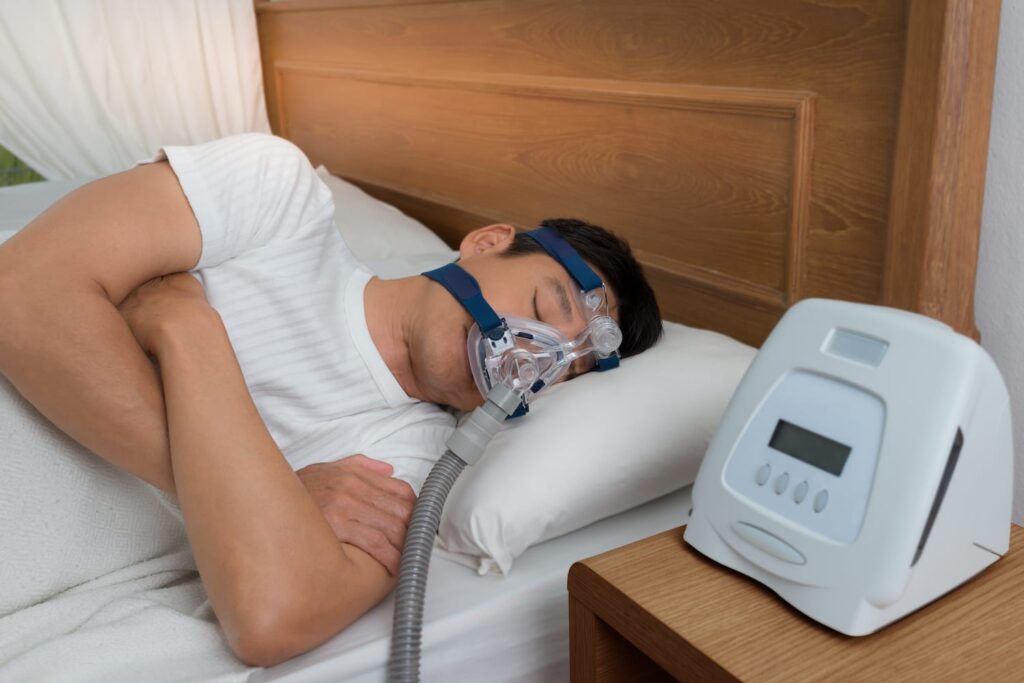When it comes to getting a good night’s sleep, many people struggle. From busy schedules to stress and anxiety, there are numerous factors that can disrupt our sleep patterns. That’s where sleep tests come in – they provide valuable insights into our sleep quality and can help identify any underlying sleep disorders. In this article, we will explore the importance of sleep tests, the basics of a sleep test, how to prepare for one, and what to expect during the process.
The Importance of Sleep Tests
Sleep tests play a crucial role in identifying sleep disorders and understanding their impact on our overall health and well-being. By monitoring various sleep parameters, such as brain waves, breathing patterns, and movements, sleep tests can provide valuable information that can guide treatment plans and improve sleep quality.
Moreover, sleep test is not only beneficial for diagnosing existing sleep disorders but also for uncovering potential issues that may be affecting an individual’s sleep quality without their awareness. For example, periodic limb movements or mild sleep apnea may go unnoticed during regular sleep but can be detected through a comprehensive sleep test. This detailed analysis allows healthcare professionals to address these underlying issues proactively, preventing them from escalating into more severe conditions.
Identifying Sleep Disorders
One of the primary purposes of a sleep test is to identify sleep disorders. These disorders can range from sleep apnea and insomnia to restless leg syndrome and narcolepsy. By monitoring a person’s sleep patterns and behaviors during a sleep test, healthcare professionals can accurately diagnose these conditions and develop appropriate treatment strategies.
Furthermore, the data collected from sleep tests can provide insights into the severity and frequency of sleep disruptions experienced by an individual. This information is crucial for tailoring treatment plans to address specific needs effectively. For instance, knowing the exact moments when breathing pauses occur in a patient with sleep apnea can help doctors prescribe the most suitable interventions to ensure uninterrupted sleep and overall well-being.

Improving Sleep Quality
In addition to identifying sleep disorders, sleep tests can also help individuals improve their sleep quality. By analyzing the data collected during the test, sleep specialists can identify potential underlying causes of poor sleep, such as excessive snoring or restless movements. With this information, they can recommend lifestyle changes or treatment options that can significantly enhance sleep quality.
Moreover, the comprehensive nature of sleep tests allows for a holistic approach to addressing sleep issues. By considering various factors like sleep environment, stress levels, and overall health, healthcare providers can offer personalized recommendations to promote better sleep hygiene and overall wellness. This tailored approach not only targets the symptoms but also aims to improve the root causes of sleep disturbances, leading to long-term benefits for the individual’s health and quality of life.
The Basics of a Sleep Test
Now that we understand the importance of sleep tests, let’s delve into the basics of what a sleep test entails.
When it comes to understanding the quality of your sleep, a sleep test, also known as a polysomnogram, plays a crucial role. This non-invasive procedure is typically conducted in a specialized sleep center or clinic, where trained professionals monitor and analyze your sleep patterns. By utilizing various sensors and monitors, a sleep test is able to measure and record different physiological parameters throughout the night, providing valuable insights into your sleep health.
What is a Sleep Test?
A sleep test, also known as a polysomnogram, is a non-invasive procedure conducted in a sleep center or clinic. This test involves the use of various sensors and monitors to measure and record different physiological parameters during sleep. These parameters include brain activity, eye movements, heart rate, oxygen levels, and muscle activity.
During a typical sleep test, electrodes are placed on your scalp, face, chest, and legs to monitor brain waves, eye movements, heart rate, and muscle activity. A belt around your chest measures your breathing patterns, while a small clip on your finger monitors oxygen levels. All these data points are recorded and analyzed to assess the quality of your sleep and identify any potential sleep disorders.
Types of Sleep Tests
There are different types of sleep tests, depending on the specific sleep disorder being evaluated. Some common types include:
- Polysomnography (PSG): This is the most comprehensive sleep test that records several physiological parameters simultaneously.
- Multiple Sleep Latency Test (MSLT): This test measures how quickly an individual falls asleep during the day, helping diagnose disorders such as narcolepsy.
- Home Sleep Test (HST): This test allows individuals to undergo a sleep study in the comfort of their own home using portable monitoring devices.
Each type of sleep test serves a unique purpose in diagnosing and treating sleep disorders. Whether it’s monitoring your nighttime sleep patterns or assessing your daytime alertness, these tests provide valuable information that can help healthcare providers tailor treatment plans to improve your overall sleep quality and well-being.
Learn more at: Everything You Need to Know About Sleep Apnea Tests in Melbourne
Preparing for Your Sleep Test
Preparing for a sleep test is essential to ensure accurate and reliable results. Here’s what you can expect and how to prepare.
When it comes to undergoing a sleep test, being well-prepared can make a significant difference in the outcome of the results. Understanding the process and taking necessary steps beforehand can help in obtaining valuable insights into your sleep patterns and potential sleep disorders.
What to Expect
Before the sleep test, you will meet with a sleep technician who will explain the procedure and answer any questions you may have. This initial consultation is crucial as it allows you to familiarize yourself with the equipment and the environment, helping to alleviate any anxiety or concerns you may have. The technician will walk you through the setup, ensuring you are comfortable and at ease before the test begins.
During the test, you will be required to sleep overnight at the sleep center. The room will be comfortable and designed to resemble a home-like environment, enabling you to sleep as naturally as possible. The ambiance is carefully curated to promote relaxation and mimic your typical sleep setting, facilitating a more accurate representation of your sleep habits. Sensors and monitors will be attached to your body, and your sleep will be monitored throughout the night to capture data on your sleep stages, breathing patterns, and any potential disruptions. Read more about accurate at https://opi.cs.cmu.edu/show/accurate_information
How to Prepare
There are a few steps you can take to prepare for your sleep test. First and foremost, it is advisable to maintain your regular sleep schedule in the days leading up to the test. Ensuring you are well-rested can contribute to more reliable results and a better understanding of your sleep patterns. Avoid consuming caffeine or any stimulants on the day of the test, as they can interfere with your ability to fall asleep and maintain a restful state throughout the night.
Additionally, it is recommended to have a light meal before the test to prevent hunger or discomfort during the monitoring period. Opt for easily digestible foods that are not too heavy on the stomach. Furthermore, refrain from napping during the day to build up a natural sleep drive for the test night. Following these guidelines and any specific instructions provided by your healthcare provider regarding medications or other habits that may impact the accuracy of the sleep test results is crucial for obtaining comprehensive and reliable data.
The Sleep Test Process
Now that you are prepared for your sleep test, let’s explore the process and what you can expect during your overnight stay at the sleep center.
Upon arrival at the sleep center, you will be greeted by the friendly staff who will guide you through the check-in process. You will then be shown to your private room, designed to create a relaxing environment conducive to sleep. The room is equipped with a comfortable bed, dim lighting, and temperature control to ensure your comfort throughout the night.
The Role of Sleep Technologists
Sleep technologists play a vital role in conducting sleep tests. They are trained professionals who will attach the sensors and monitors to your body, ensuring that they are correctly positioned and secure. Throughout the night, they will monitor your sleep remotely and make necessary adjustments, if required. Their expertise and guidance ensure accurate data collection and a comfortable experience.
Additionally, sleep technologists are trained to recognize and address any issues that may arise during the test, ensuring that you are in safe hands throughout the night. Their presence provides reassurance and support, allowing you to relax and focus on getting a restful night’s sleep.
Understanding Sleep Test Results
After the sleep test, the collected data will be analyzed and interpreted by sleep specialists. They will evaluate various parameters, such as breathing patterns, brain activity, and oxygen levels, to determine if there are any abnormalities or indications of sleep disorders. Based on the results, they will provide a comprehensive report and discuss the findings with you.
During the result interpretation process, the sleep specialists will take the time to explain the significance of each measurement and how it relates to your overall sleep health. They will address any concerns you may have and provide recommendations for further evaluation or treatment, if necessary. This personalized approach ensures that you have a clear understanding of your sleep test results and empowers you to make informed decisions about your sleep health moving forward. Click here to read more about measurement.
Post-Test Procedures
Once you have received the results of your sleep test, there are important next steps to consider.
It’s crucial to understand that the results of a sleep test can provide valuable insights into your sleep patterns and overall health. The data collected during the test can reveal if you have any underlying sleep disorders that may be affecting your quality of sleep. By analyzing these results with your doctor, you can gain a better understanding of your condition and work towards improving your sleep quality.

Discussing Results with Your Doctor
Schedule an appointment with your doctor to discuss the sleep test results. They will explain the findings, answer any questions you may have, and recommend appropriate treatment options, if necessary. Together, you can develop a plan to address any identified sleep disorders and improve your sleep quality.
During your discussion with your doctor, don’t hesitate to ask about the specifics of the sleep test results. Understanding the data, such as your sleep efficiency, total sleep time, and any disruptions during the night, can provide valuable insights into your sleep patterns. This information can guide the treatment plan and help tailor interventions to suit your individual needs.
Treatment Options and Next Steps
Based on the sleep test results and your doctor’s recommendations, there are various treatment options available for sleep disorders. These may include lifestyle modifications, continuous positive airway pressure (CPAP) therapy, medication, or referral to a specialist for further evaluation. Following the prescribed treatment plan will help manage your sleep disorder and enhance your overall well-being.
It’s important to remember that treating a sleep disorder is a collaborative effort between you and your healthcare provider. By actively participating in your treatment plan and making necessary lifestyle changes, you can significantly improve your sleep quality and overall health. Embracing these interventions can lead to better daytime functioning, improved mood, and enhanced quality of life.
Understanding the sleep test process is key to taking control of your sleep health. By recognizing the importance of sleep tests, knowing what to expect, and utilizing the valuable information obtained from the tests, you can make informed decisions and improve your sleep quality. Remember, a good night’s sleep is essential for a happy and healthy life.

